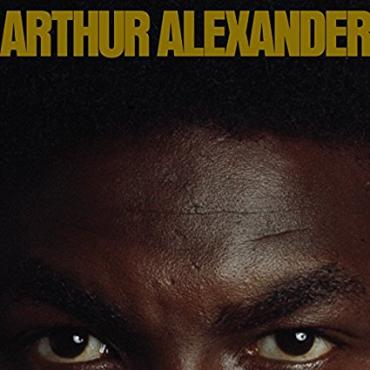A Quiet 1972 Gem from a Country-Soul Legend

Arthur Alexander’s music career was as heartbreaking as were his songs. A writer of indelible sorrow, he sang with a depth that seemed to flow directly out of his aching soul. He reached the Top 40 with “You Better Move On” and the R&B Top 10 with “Anna,” but his songs quickly became better known for other artist’s covers – the Stones, Beatles, Steve Alaimo, Gary Lewis & The Playboys and Bob Luman in the ‘60s – than for his own performances. The covers kept coming, as Mink DeVille, Chris Spedding, Marshall Crenshaw, Pearl Jam and others discovered Alexander’s songs, but various revivals of his own recording career never reached the commercial heights his artistry deserved.
Dropped by Dot in 1965, Alexander recorded a handful of singles for Sound Stage 7 and Monument (collected here), and in 1971 was signed by Warner Brothers to record this album. Alexander wrote five of the twelve titles, serving up heartbreak tinged with the difficult loyalty of “Go On Home Girl” and the painful memories of “In the Middle of It All.” Amid the sadness he surprises with resilience, haunted by failure but not knocked out in “Love Is Where Life Begins,” and resolutely focused on the prize in Dan Penn and Donnie Fitts’ troubled “Rainbow Road.” He aches with quiet desire on “It Hurts to Want It So Band,” and offers up an early version of Dennis Linde’s “Burning Love,” but without the fire of Elvis’ subsequent hit.
Released in 1972, the album and its singles garnered little interest from radio and no commercial results to speak of. A pair of follow-on singles, included here as bonus tracks, fared no better commercially. “Mr. John” has the sleek feel of Bill Withers, and the follow-up cover of “Lover Please” has a bouncy New Orleans roll. Two more tracks, the yearning “I Don’t Want Nobody” and optimistic “Simple Song of Love” were recorded for Warner Brothers but left unreleased until now. Alexander resurfaced a few years later with a charting cover of his own “Every Day I Have to Cry Some,” as well as the Elvis tribute, “Hound Dog Man’s Gone Home,” but unable to sustain this success, he left the business.
Two decades later he bubbled up again with the superb Lonely Just Like Me, finally receiving the attention and accolades he deserved. Sadly, and perhaps in keeping with the melancholy of his best work, Alexander passed away just months after the album’s release. Omnivore’s reissue of Arthur Alexander reproduces the original 12-song running order, adds six additional tracks waxed for Warner and original cover art. The 12-page booklet includes full-panel photos, label reproductions, and original and new liner notes by Barry “Dr. Demento” Hansen. Although his time with Warner Brothers was short, it was artistically triumphant, and adds a valuable chapter to his small but influential catalog. [©2017 Hyperbolium]




